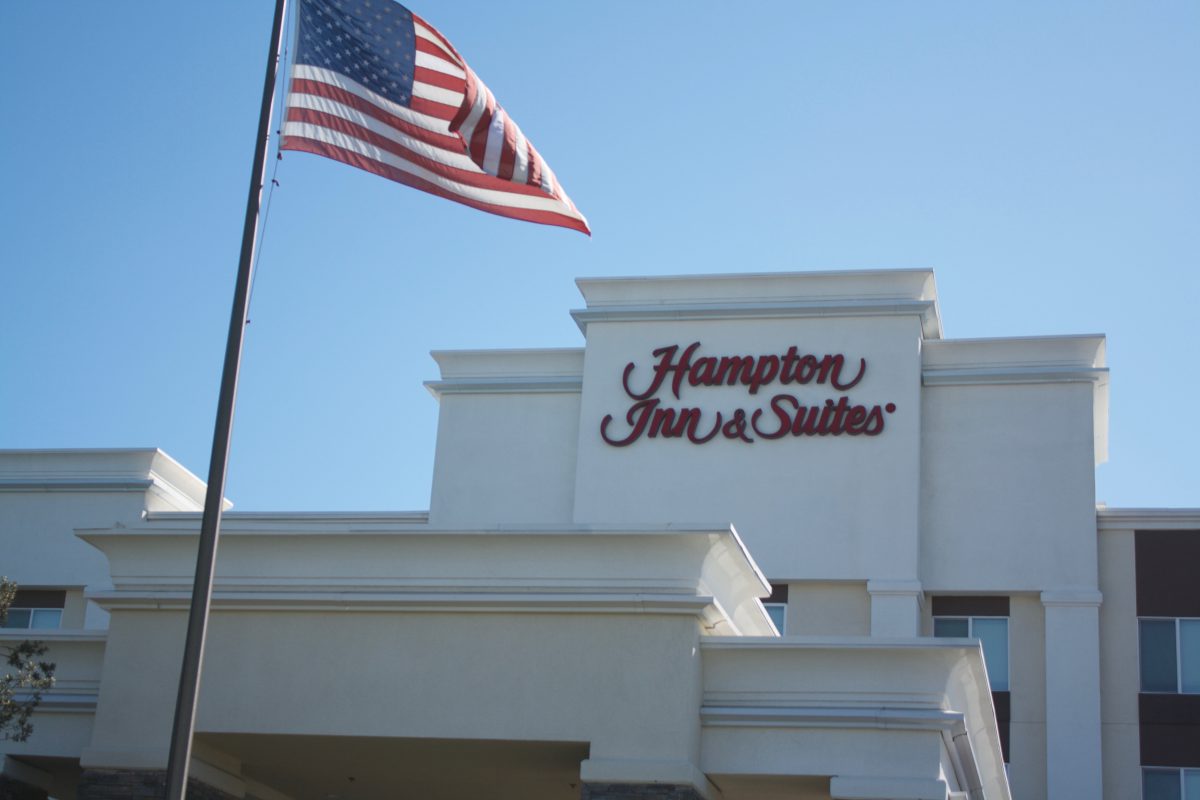
The Hampton Inn in north Fresno at Herndon Avenue and Fresno Street has temporarily shut its doors due to impacts from the COVID-19 crisis. Photo by Donald A. Promnitz
Written by Donald A. Promnitz
With the COVID-19 pandemic in full swing, travel and tourism in the Central Valley are almost nonexistent.
It’s a situation that comes off of a record year for such activity and has been a massive shock to the hospitality business. Now, the circumstances have some in the region tightening their belts — and getting creative.
According to Layla Forstedt, president and CEO of the Fresno/Clovis Convention & Visitor’s Bureau, many of the hotels in the Valley are currently running at about 10% of their occupant capacity. For some hotels, like the Hampton Inn in Fresno at Herndon Avenue and Fresno Street, the lack of business has caused them to temporarily shut their doors. Meanwhile, other industries that rely on tourism have come to a grinding halt.
“It shows that tourism has not really been understood as to what it does for an economy. Now I think people are realizing, ‘oh my gosh,’ because of what’s happened,” Forstedt said. “And that included even all the supply chain industries. I mean, you can go on and on and on and think about everything that’s happening.”
Guarav Deep Sethi, chief development officer at Sethi Management, Inc. in Carlsbad, said his company has also felt the impact in their hotels in California, Nevada and Arizona. This includes the new Hyatt Place hotel in Fresno, which opened last summer.
“It’s a fluid situation, so we’re kind of working through it,” Sethi said. “We’re trying to keep on as much staff as possible.”
Currently, the banks have for the most part been working with them to defer debt service, but he’s worried about property taxes, which are due on April 10. While Arizona has pushed back the due date to June, Sethi explained that they are still waiting to see if California and Nevada will follow suit.
In order to bring in income, Sethi and others in their situation have been trying to find different solutions to fill rooms and generate business. This includes reaching out to offer quarantine services for the homeless and discounted rooms for travelling medical personnel.
“It’s tricky,” he said. “So far, nothing kind of has come to fruition, but there is still construction travel happening and some other crumbs, so we’re trying to go out and find whatever we can, but it has not been to promising so far,”
As for their laid off staff, they’ve established pantries at the hotels. They are also working to provide free coffee and soda for first responders and possibly meals for students who will no longer be getting a school lunch.
Meanwhile, despite the difficulty, Forstedt remains hopeful that things will open back up in May. In the meantime, however, she says the industry will have to think on its feet.
“We’re just all working together to be creative and find ways to find any business we can and hang in there,” she said. “And hopefully, it’ll go away as quickly as it came.





